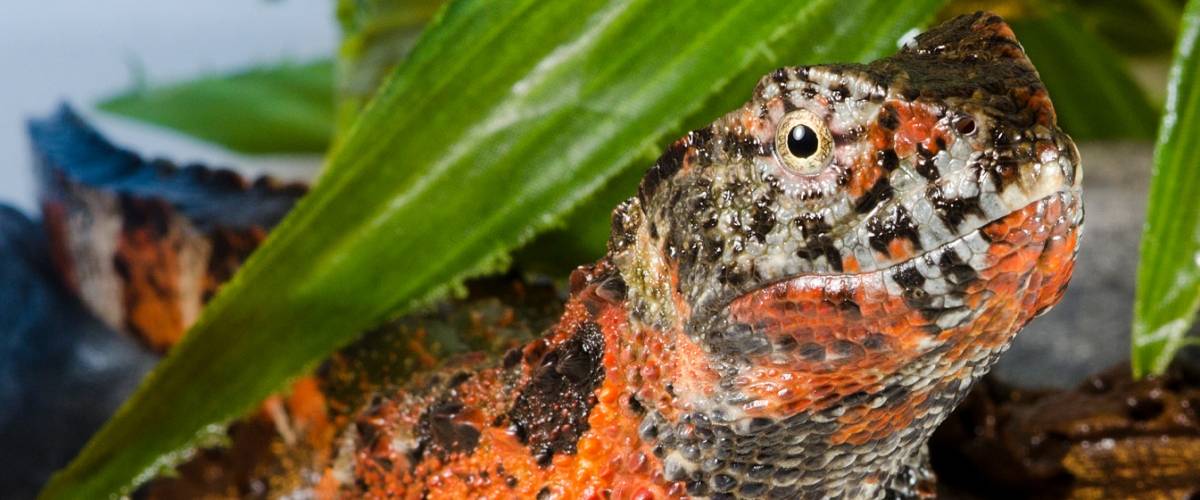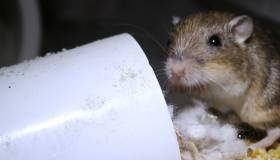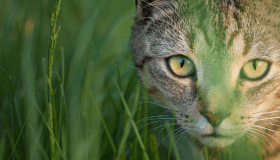
DENVER/June 25, 2020 – The question of sex determination – a fundamental roadblock to saving endangered Chinese crocodile lizards – could soon be removed. Morris Animal Foundation-funded researchers at Marquette University are developing a simple genetic test to identify if a lizard is male or female. If successful, the test will be used to determine the sex of every crocodile lizard in participating North American zoos to help save the species.
Chinese crocodile lizards are listed as endangered on the International Union for Conservation of Nature's Red List, and captive breeding is crucial to their long-term survival. Unfortunately, they lack distinct and obvious differences in sexual appearance, hampering conservation efforts. In North American zoos, at least a third of Chinese crocodile lizards remain unsexed. This also can lead to zookeepers mistakenly housing males together, causing stress and injuries.
“Our hope is that by being able to sex these lizards in an efficient manner, we can help zoos manage this species in captivity and hopefully mitigate extinction in the wild,” said Dr. Tony Gamble, Assistant Professor of Evolutionary Biology at Marquette University, Wisconsin, and primary investigator of the study. “But, on top of that, we don’t know anything about their sex chromosomes, and this would be an important step in understanding their biology.”
Sex chromosomes vary between animal classifications. Mammals, for example, have XX/XY sex chromosomes. The Y chromosome is essentially a degenerated X chromosome and, typically, males have one X and one Y chromosome while females have two X's. This system can be identified by having male-specific DNA markers. Birds and butterflies have a ZZ/ZW chromosome system, with female-specific markers. Reptiles, however, have repeatedly evolved unique sex-determining systems, including both XX/XY and ZZ/ZW systems. A sex test that works in one species may not work in a closely related species because they have different sex chromosomes.
For their study, the team is analyzing blood samples from 15 Chinese crocodile lizards housed at three American zoos. All of the lizards’ sexes are definitively known for developing the test. Researchers will sequence the lizard's DNA and compare the male and female sequences, which will help the team to better distinguish male or female characteristics at a genetic level.
Once they design a test that can reliably distinguish males from females, the team plans to sex every Chinese crocodile lizard in North American zoos for free, using blood or shed skin. They also will produce a detailed written protocol for distribution to zoos worldwide to facilitate captive breeding of the lizards at additional facilities.
“These lizards are in a precarious position globally and a reliable test of this type could greatly improve their chance of survival,” said Dr. Janet Patterson-Kane, Morris Animal Foundation Chief Scientific Officer. “We need to do what we can to repopulate this species in zoos and maybe, eventually, in the wild”.
The Chinese crocodile lizard is the sole member of the family Shinisauridae and native to a small region of southeastern China and northern Vietnam. One of the rarest lizard species in the world, there are only about 1,100 individuals left in wild. Their primary threats come from habitat loss and the international pet trade.
Morris Animal Foundation, headquartered in Denver, is one of the largest nonprofit animal health research organizations in the world, funding more than $155 million in studies across a broad range of species.
About Morris Animal Foundation
Morris Animal Foundation’s mission is to bridge science and resources to advance the health of animals. Founded by a veterinarian in 1948, we fund and conduct critical health studies for the benefit of all animals. Learn more at morrisanimalfoundation.org.




